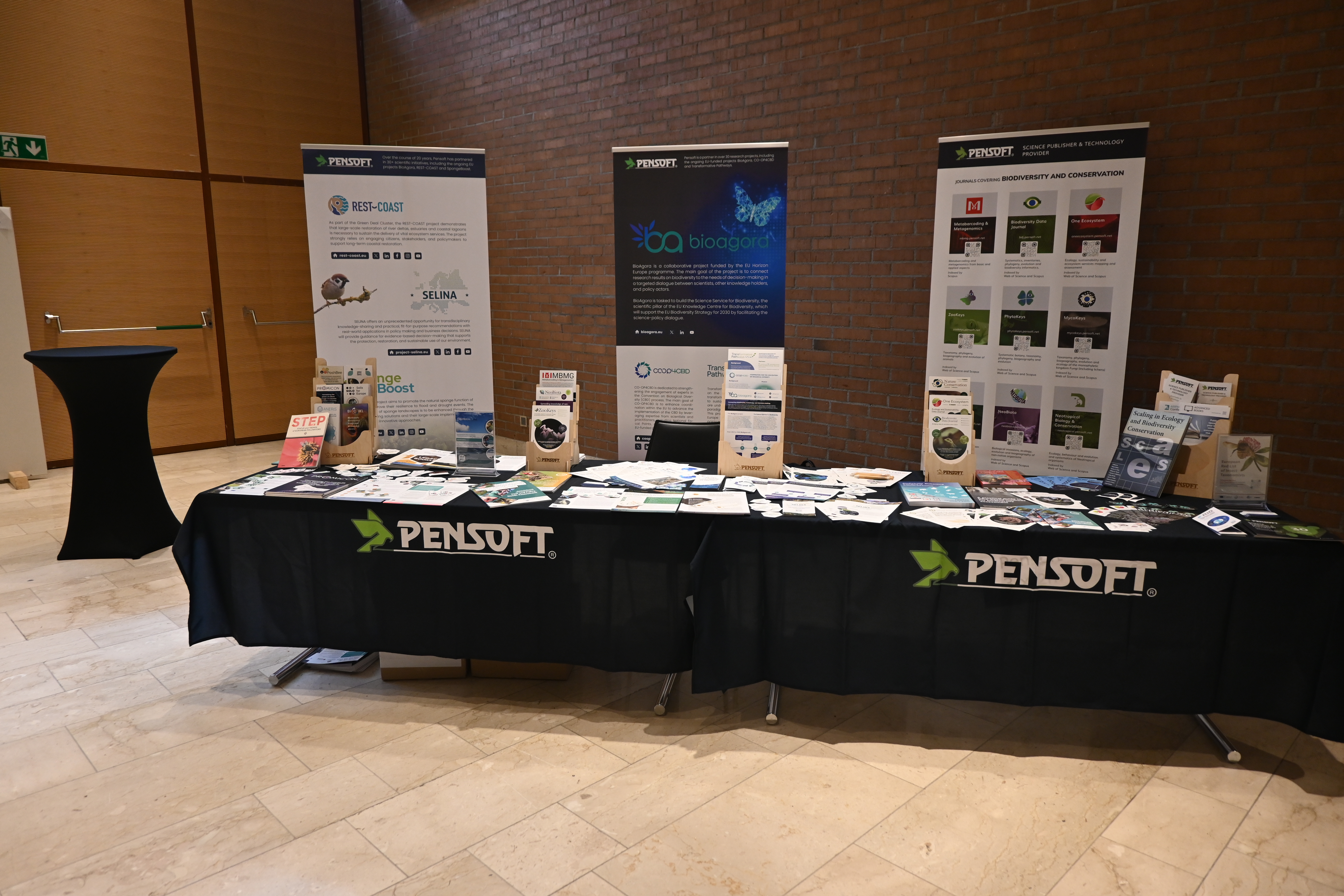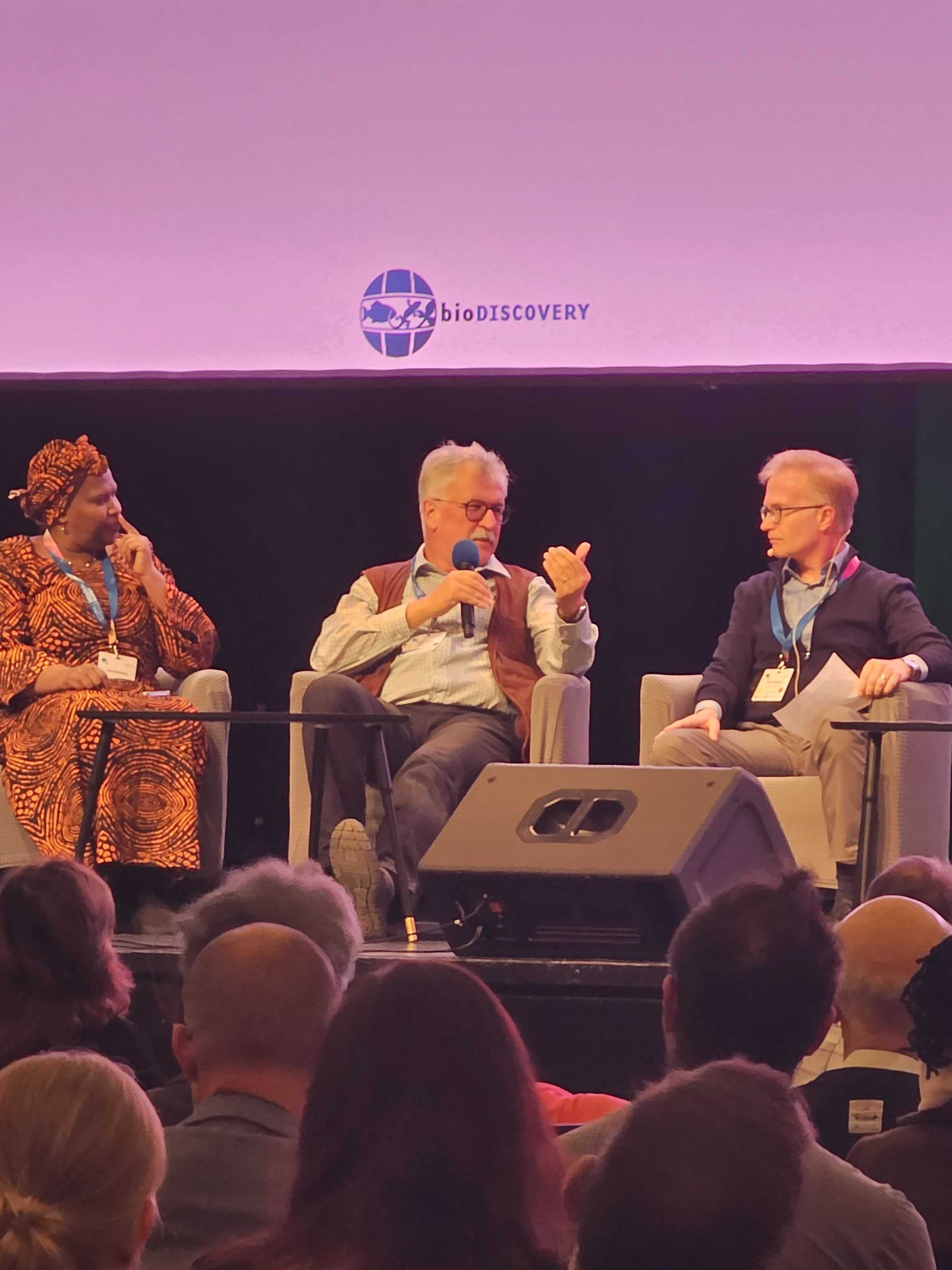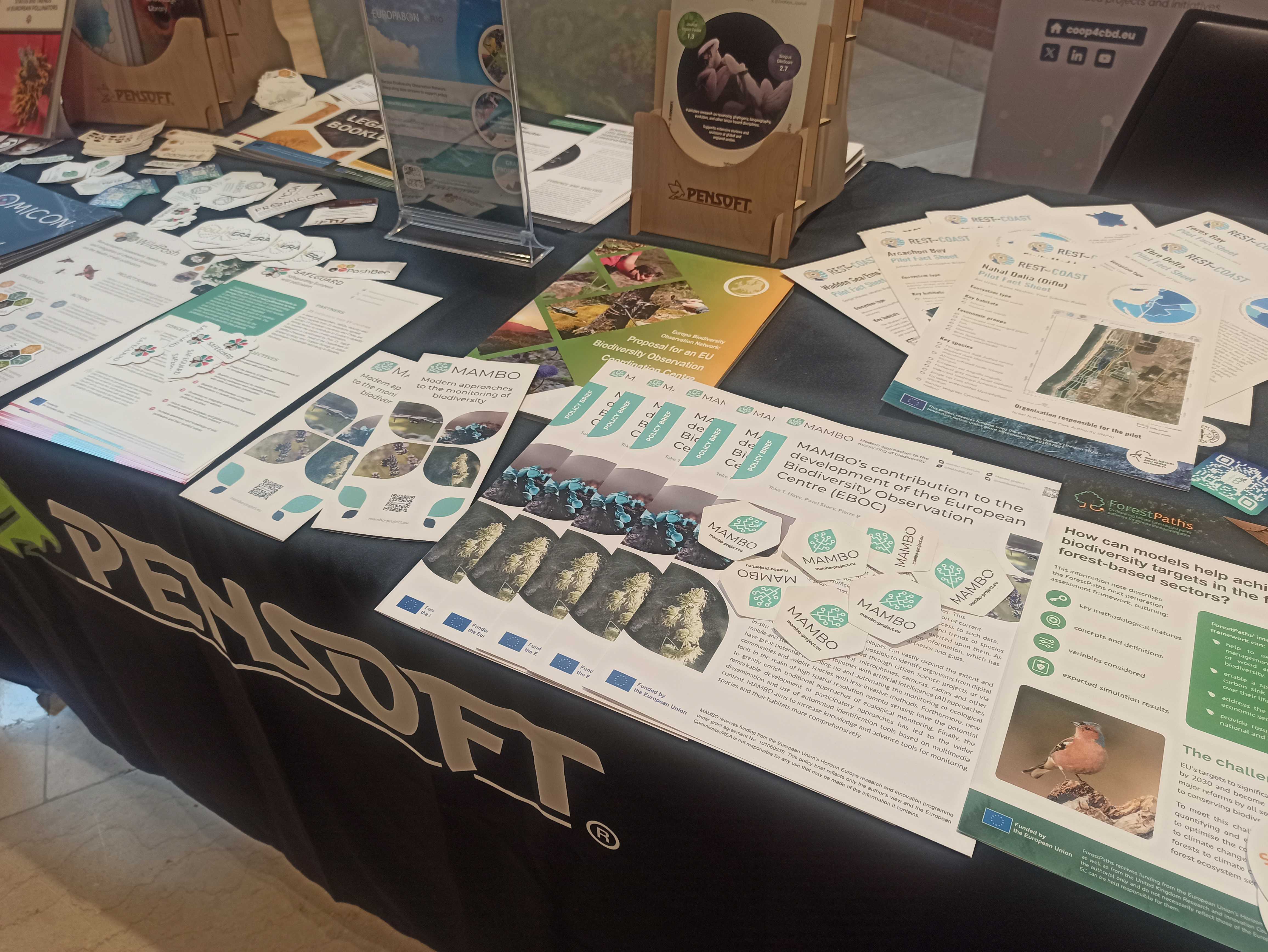MAMBO attends the 3rd World Biodiversity Forum and promotes the project's first policy brief
From 16 to 21 June in Davos, Switzerland, MAMBO took part in the 3rd World Biodiversity Forum (WBF), which brought together researchers, practitioners, and stakeholders to address critical issues in biodiversity conservation and sustainable transformation. A few MAMBO partners also participated in the event, contributing to discussions on advancing biodiversity preservation efforts globally.
The project was showcased at a collaborative exhibition stand, organised by the science communication leader Pensoft Publishers, alongside other Horizon projects, including REST-COAST, SELINA, SpongeBoost, and BioAgora, displaying various project materials.

On the first day of World Biodiversity Forum, MAMBO partner Josef Settele from Helmholtz Centre for Environmental Research (UFZ) took part in the opening ceremony's panel discussion on "How to move from science to action and impact."

On the second day of WBF, Christophe Botella, a research partner from Inria, gave an oral presentation on the following topic "251 Towards High Spatial Resolution and Dynamic in Species Distribution Modeling" in a session, called "Species Distribution Models for Spatial Prioritization of Biodiversity Conservation". His presentation highlighted the importance of understanding species distribution and changes to predict biodiversity threats, noting that current methodologies lack integration of observational data and causal processes. He demonstrated how combining remote sensing with biodiversity observations in deep learning models has significantly improved species composition predictions. Additionally, he proposed a Bayesian dynamic model to predict future spatial dynamics, using the invasion analysis of Plectranthus barbatus in South Africa as a case study.

Attendees had the opportunity to learn more about MAMBO and grab a copy of the first official policy brief on "MAMBO's contribution to the development of the European Observation Coordination Centre (EBOCC)."You can preview the full version here.

MAMBO's participation in the WBF underscored its ongoing efforts to tackle biodiversity conservation challenges through scientific research and policy alignment. Learn more about WBF here.